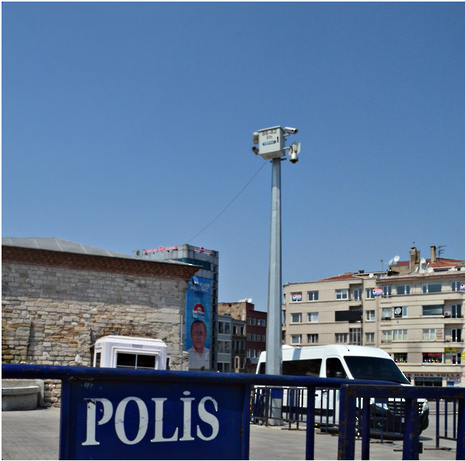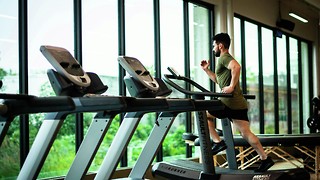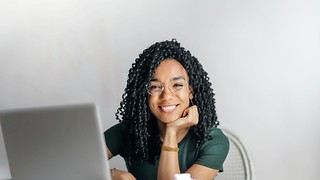Sky Holmes in Kurdistan: safety close to Syria
As Parliament holds a vote on military action against Islamic State, Sky Holmes reflects on his safety as a journalist in the region

“You will be watched by Mossad,” I was told in Cambridge before leaving for the Turkish and Kurdish border with Syria. Mossad is Israel’s infamously effective intelligence agency. In my case, they would be interested in my proximity to the border and the possibility that I was one of the ‘Western jihadis’ eager to spill blood in the name of the Islamic State: anti-Western, anti-American, anti-Israel, anti-Semitic.
It is difficult to know whether one was being watched by an intelligence agency. I certainly met a lot of Israelis, and I should probably say no more. But I will: the activities of some Israelis I met were suspicious. Warnings about how closely every foreigner is watched here were given to me by Israelis who asked a lot of questions about my purpose here, but who, when asked in return, gave unsatisfactory, albeit carefully constructed, answers. The presence of Israelis in Turkey and Kurdistan, unfortunately, is often unwelcome, and with recent events in the contested/colonised territories of ‘Palestine Israel’ I was surprised by the numbers of Israelis I encountered, often travelling under false aliases. Swedes and Australians became Israelis after a few hours.
I was accused of being both Israeli and Arabic while here. It is unfortunate that most people’s logic today will dictate that these accusations came from different people. What is more unfortunate is that being asked whether one is Israeli or Arabic is a form of accusation at all.
Bear in mind that safety issues permeate such a trip: my laptop was hacked several times, many people would not speak to me, and many wanted to speak too much. At several points I clutched a knife in one hand and a mobile in the other. I was offered passage across the Syrian border and in turn later had to shave, get a haircut and buy pseudo-Western-style clothes in order to speak with Yazidi refugees who feared I was IS and refused to speak with me while I was sporting a black beard and cargo trousers. Understandable, but surreal.
I was mostly just asked that innocent question “Where are you from?” and, just as surreally, did not know what to say and debated trying to change identities. IS have a strong underground presence close to the border. Members have been outed via assassination by PKK (Kurdish Worker’s Party) even in Istanbul, the topmost north of Turkey. I am in the very south, skirting the border, but in reply I state “English” or “British” every single time, with what I wish had been a gulp but was in fact a laugh. To laugh in the face of that question, at many times, seemed the only thing one could do. I had no other story in mind, no fiction to tell potential friends, sources and enemies. Because of my focus on Syrians and Kurds, I was little aware that the Western media was dominated by the news of Western hostages taken and beheaded by IS. But I was very aware of the look in some people’s eyes as I revealed my nationality and more aware of the blacked-out vans that quickly stopped next to me, continued and then stopped again. At times, usually in the evening, things seemed dangerous, but remained stable. There was stability in not refuting a part of my identity that I had not chosen.
To identify or be identified as Israeli or Palestinian, Western or Eastern, Arabic or British or American, or even Turkish or Kurdish can be dangerous here. In Istanbul I speak of “Kurdistan” and am told to keep quiet by a friend, as Kurdistan has limited recognition. The PKK, still classed as a terrorist organisation by the EU while being celebrated in the media for saving Yazidi lives and fighting IS, is a name rarely said aloud, not only in Turkey but also in Kurdistan. Everyone seems divided: many Kurds view the Turkish-Kurdish conflict as a smaller version of the Israeli-Palestine situation. But there were moments of unity: the day before I arrived in Diyarbakir, a traditional stronghold of the PKK, the Turkish police-cum-army were walking alongside Kurds protesting in a march against IS. ‘Alongside’ in the most literal sense: not ‘beside’ the Kurds, but either side of them, hemming them in with their water-cannons at the ready. Even so, everyone afterwards spoke of an atmosphere of unity for that hour or so. No one mentioned the PKK in public. But I did meet them in private.
Armed with their AK-47s and wary of attack, the PKK were hospitable. We spoke about the ‘Kurdish problem’ and, in short, I learnt that the conflict is not as over as is suggested in much of the media. In Turkey this would not be published. Away from the meeting and the mountains I had to pass checkpoints manned by the police and the army with tanks and guns, not really knowing how to explain my presence in known PKK territory. No one here knows what to say or what to identify with or as, and yet everywhere you go someone asks, “Who are you, and why are you here?” In Istanbul, under President Erdogan’s authoritarian, brutal police force, one sees a state of fear where identities are hidden, closely monitored and controlled. I was harassed by the police for taking photos, a banned activity, and for wearing red, a socialist colour. In Kurdistan the presence of the Turkish army makes many a conversation rot in the mouth. Journalists I speak with whose names I cannot publish speak of self-exile due to harsh press restrictions and sometimes fear for their lives.
Just this week English PEN, ARTICLE 19 and Reporters Without Borders sent an open letter to President Erdogan on the eve of his first address to the UN General Assembly as head of state, raising their concerns about the protection of freedom of expression in Turkey. Journalists are targeted for writing about IS in Turkey and about Erdogan and his party being corrupt and many men, women and children here hide their ethnicity, political views and many other aspects of their identity. But in Istanbul you can pass an IS gift shop, selling hoodies and baseball caps with the infamous black background and white logo, or, alternatively, ‘Mujahideen Around The World’ printed above a Call of Duty-style image of terrorists.
I have been asked to write from a ‘student perspective’ and thus chose the topic of ‘safety’. But you cannot currently travel as a student to the deep south of Kurdistan or the border with Syria. Safety concerns all but exclude student travel: come with an NGO, a charity, or as a journalist and think, always, of your safety. The irony as I write about safety is that writing compromises the safety of too many in Turkey and Kurdistan, whether foreign or local. Declaring too much of your identity and penning your thoughts are dangerous activities here.
 News / Cambridge don appointed Reform adviser23 October 2025
News / Cambridge don appointed Reform adviser23 October 2025 Arts / Why is everybody naked?24 October 2025
Arts / Why is everybody naked?24 October 2025 Comment / On overcoming the freshers’ curse22 October 2025
Comment / On overcoming the freshers’ curse22 October 2025 Arts / Why Cambridge’s architecture never lives up to the ‘dark academia’ dream 17 October 2025
Arts / Why Cambridge’s architecture never lives up to the ‘dark academia’ dream 17 October 2025 News / How much does your college master earn?17 October 2025
News / How much does your college master earn?17 October 2025







